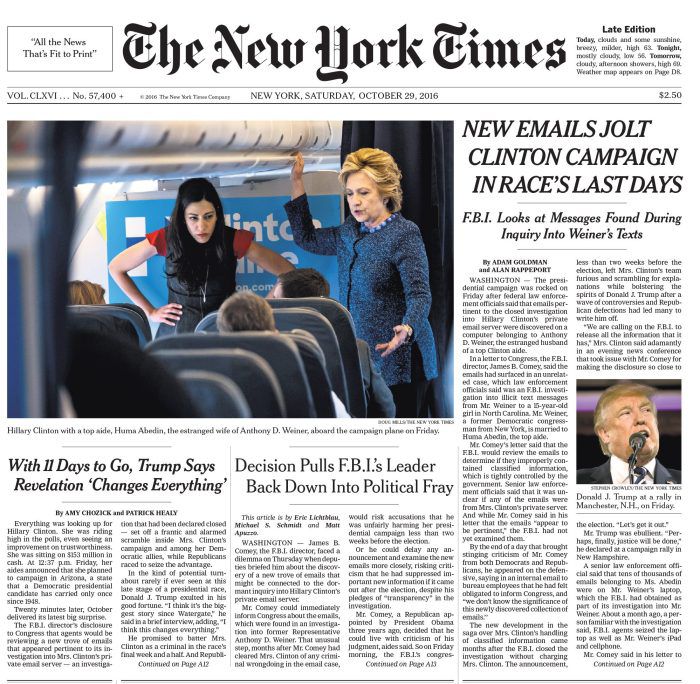Republicans get the world’s most generous grading curve

As the nation’s political press concludes that the public wouldn’t possibly care about the president and his cronies systematically violating the Hatch Act, a useful historical reminder that Al Gore engaging in dubious fundraising practices that nonetheless very clearly did not violate the Hatch Act was literally a years-long scandal:
In 1997, Al Gore was engulfed in what was considered at the time to be a massive scandal: He had almost, though not quite, violated the Hatch Act, a 1939 law prohibiting federal employees and property from being used for political purposes, by making fundraising calls from his White House office. The contemporaneous coverage of this event reads like a dispatch from another planet.
Gore “used legalistic language, which he repeated verbatim several times, to say he had not violated another law that prohibits anybody from raising campaign money in the White House,” reported the New York Times. While conceding Gore had probably not violated the letter of the law, and also not violated the spirit, which was intended to prevent officials from shaking down applicants for kickbacks, the Times explained, “The scrutiny of the Democrats has turned both on the legality of some of the donations they received and on the seemliness of Mr. Clinton’s use of his incumbency to raise money.” The scandal was deemed serious enough that, three years later, the phrase “no controlling legal authority” appeared routinely in campaign reports as a synecdoche for Gore’s scandal-tarred image, sort of a precursor for “Clinton emails.”
Someone who fell asleep 20 years ago and awoke last night would have been in for a shock. The second night of the Republican convention was a festival of massive lawbreaking. In open violation of the Hatch Act, President Trump turned the White House into a convention stage. He even held an immigration ceremony on camera, and had his secretary of State deliver a speech in explicit violation of State Department regulations. The White House might as well have been surrounded by yellow police tape. Had Al Gore tried it in 2000, he might have spent the night in jail.
Instead, the blatant violation was met with resignation. “Nobody outside of the Beltway really cares,” sneers Chief of Staff Mark Meadows. There is a controlling legal authority — they just don’t care.
Does the Hatch Act matter? Everybody in government thought it did, at least a little, right until the Trump administration.
And, of course, the 2016 election was dominated by a “scandal” that did not involve lawbreaking, and also was of absolutely no inherent substantive or prurient interest. Attempts to explain this remain as unconvincing as ever:
It’s legit to ask why violations of email protocol/govt records retention was treated as an existential election issue and violations of the Hatch Act are dismissed as a Beltway obsession.
I suspect part of it has to do with national security concerns. But that’s just a sliver— Sam Stein (@samstein) August 26, 2020
Then explain this, Sam https://t.co/82IIerthKA— Parker Molloy (@ParkerMolloy) August 26, 2020
If EMAILS! was even marginally affected by national security concerns, it remains unclear why nobody who rubbed their thighs raw over EMAILS! in 2015-6 has cared about the issue before or since. It’s basically a combination of Murc’s Law and the Clinton/Gore Rules.


